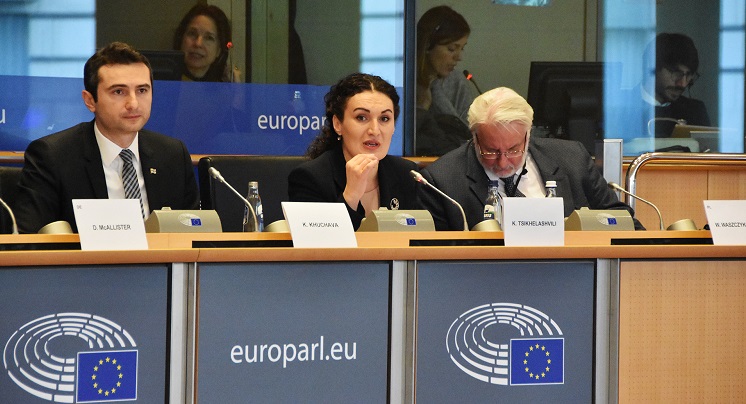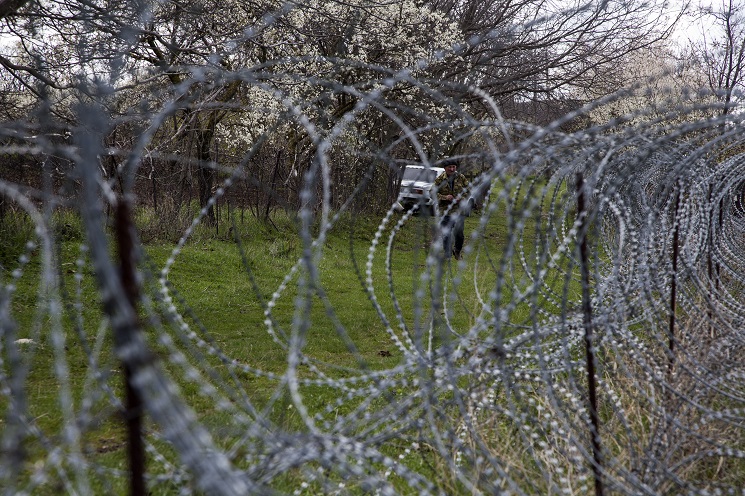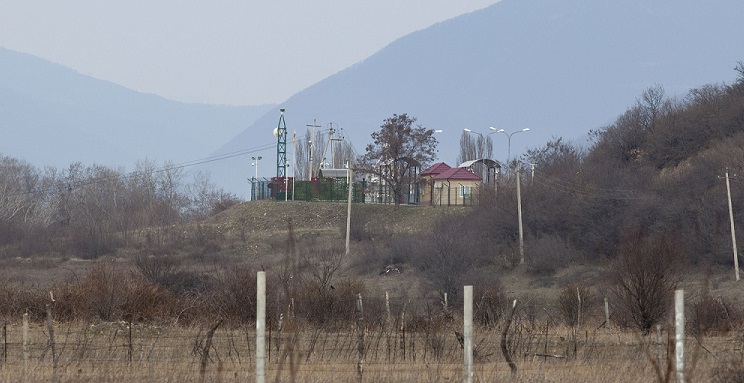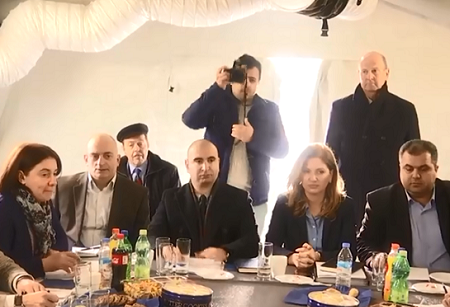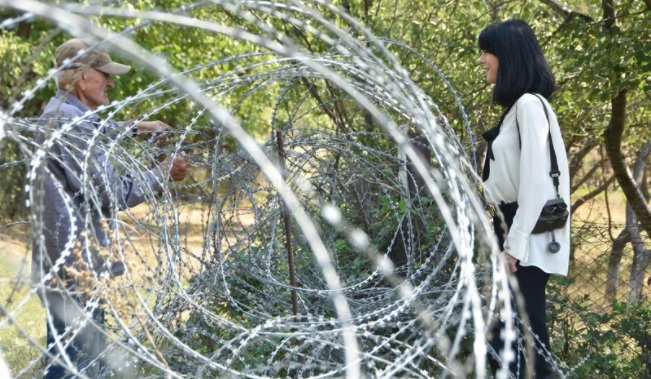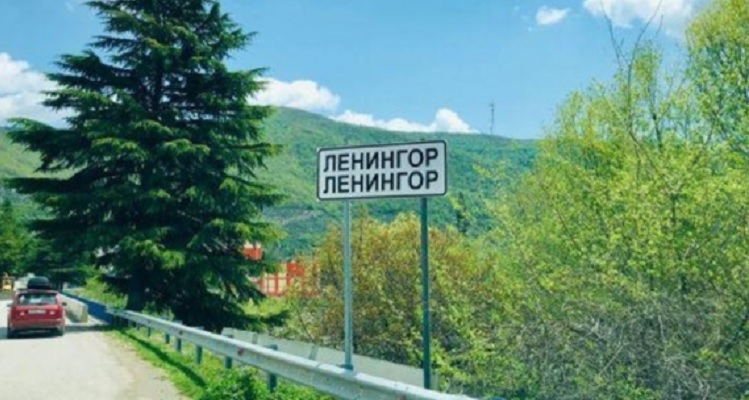18 Georgian NGOs urge EU, UN, OSCE, int’l organisations to increase pressure on Russia
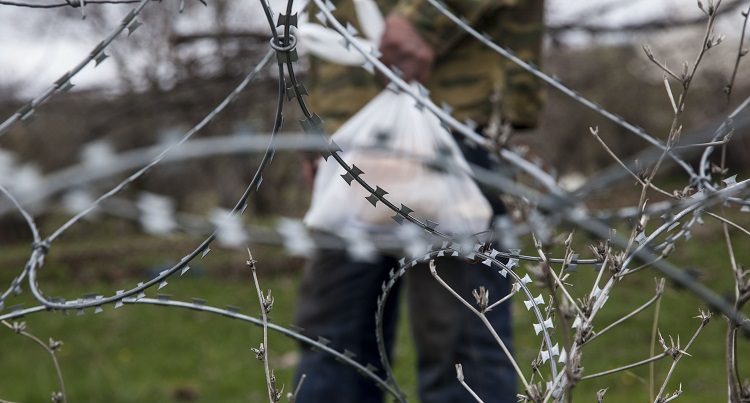
The de facto authorities of Tskhinvali closed crossing points with the rest of Georgia in early September 2019. Photo: Nino Alavidze/Agenda.ge.
18 Georgian NGOs have urged EU, UN, OSCE top officials and heads of international organisations to increase pressure on Russia, which effectively controls the two Georgian regions of Abkhazia and Tskhinvali, to make it open crossing points between its controlled Akhalgori district and the rest of Georgia, to cease arbitrary detention of people and to allow international monitoring missions ‘unimpeded access’ to the occupied territories.
We are writing this urgent call for action with grave concern over the unfolding humanitarian crisis in the Akhalgori district of Tskhinvali Region [South Ossetia], and in hopes that your immediate action will protect the local population from further harm,” reads the letter released by the NGOs earlier today.
The NGOs say that in early September 2019, the Russian controlled de facto authorities of Tskhinvali imposed a ‘complete ban’ on movement across the Mosabruni-Odzisi crossing point, ‘a lifeline for residents of the Akhalgori district, many of whom commute daily to the rest of Georgia to receive medical care, education and social services, as well as to visit their relatives and family members.’
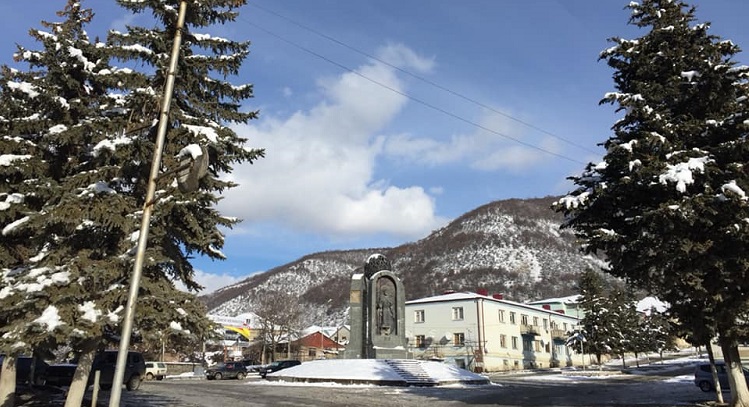 Tskhinvali says that they will reopen the crossing points when Tbilisi removes a police post which is located on Tbilisi controlled territory in the village of Chorchana, Khashuri municipality, saying that the post is 'too close to South Ossetia and poses threats." Photo of Akhalgori: Tamar Mearakishvili.
Tskhinvali says that they will reopen the crossing points when Tbilisi removes a police post which is located on Tbilisi controlled territory in the village of Chorchana, Khashuri municipality, saying that the post is 'too close to South Ossetia and poses threats." Photo of Akhalgori: Tamar Mearakishvili.
The crossing point, which normally used to handle around 400 crossings a day, remains closed until this day, with no indication as to when the restrictions will be lifted, leaving the local population - ethnic Georgians and Ossetians alike - at peril,” the NGOs say, adding that an estimated 1,000 individuals in the district have faced desperate humanitarian conditions, including food shortages and increased costs of commodities.’
The NGOs say that the closure of the crossing points have already led to several deaths in the district, due to the delayed medical aid.
The NGOs stated that the restriction ‘came on top of the already deteriorated human rights situation’ in and around the Russian-occupied areas of Georgia – Abkhazia and Tskhinvali.
Over the last few years, Gali [in occupied Abkhazia] and Akhalgori residents have seen their rights gradually curtailed, including their right to education in native language, the right to free movement and other fundamental rights. And those daring to speak against the authorities have found themselves caught in lengthy legal proceedings, as civic activist Tamar Mearakishvili in Akhalgori, who fears her open criticism of the de facto government might lead to her eventual expulsion from the region,” the letter reads.
The NGOs mentioned ‘arbitrary arrests and killings’ of Georgian citizens by Russian-controlled de facto authorities, citing the murders of Davit Basharuli in 2014, Giga Otkhozoria in 2016, Archil Tatunashvili in 2018 and Irakli Kvaratskhelia in 2019.
The NGOs say that the occupation forces also illegally detained well-known Georgian doctor Vazha Gaprindashvili, for ‘illegally crossing the border,’ when the doctor was trying to cross into the occupied territory to visit a patient there.
 Tweet
Tweet  Share
Share
